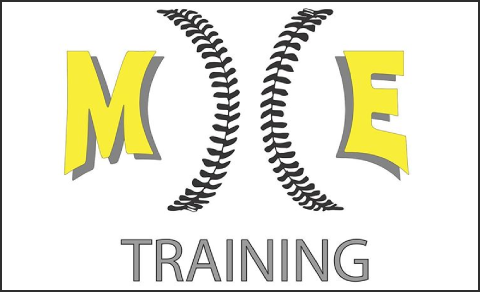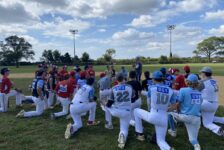Mike Cardino had watched the proliferation of travel baseball on Long Island and came away feeling inspired to put his own product out on the field. His vision included an organization that was built around keeping promises, doing right by the players and having an honest relationship with the player and parents.
Having a son that was a talented ballplayer in Massapequa, he knew the area was fertile with ballplayers. Cardino was on the board of the Massapequa International Little League. When combined with Massapequa Coast, it totaled 4,000 players and produced a flock of college players every season.
“In my opinion, Massapequa puts out the best talent on Long Island,” he said. “We had two separate Little Leagues that eventually met up in high school to form one of the top schools on LI.” For a period of seven years, his team featured a number of young players that went on continuing their careers beyond high school including Jesse Berardi, Bobby Morse, Nick Capuana, Nick Fanneron, Matt Carracappa and his son, Michael Cardino. Eventually the team aged out but it showed he was able to retain and develop players.
From 1999 to 2009 he was apart of the Long Island Braves until the program disbanded. Despite that, he stuck with Paul Memoli, owner of the LI Braves. “He really is the reason how I got started in travel baseball, I owe it to him,” he said.
He wound up partnering with Bill Faust – another member of the Massapequa community who had three sons that played ball. The two decided to begin their own organization. After much deliberation, they decided to go with the name ‘Diamond Spikes’.
“Mike and Paul had been with the Braves for so long,” said Faust. “When he came to me and needed some help, we decided to reboot everything. My passion is the game of baseball and as long as I can pass it along, it’s great.”
In their first year, the organization had 11 teams. Despite the sizable number, he preferred to go in the opposite direction.
“We decided to downsize because it became a full-time job. We couldn’t give people the quality they were paying for. As you know, finding quality coaches is always the hardest part,” he said. They wound up deciding to keep five or six teams each year moving forward, focusing on quality over quantity.
In 2012, they brought on Scott Hicok, another parent who had sent his son through the college recruiting process that was frustrated with the way his travel coaches handled the process. Hicok was named GM and handles all aspects of the college recruiting.
He chose this avenue out of a “place of frustration”, he said. “I didn’t really have anyone to talk to, there was no guidance. Bill and Mike were really by biggest resources,” he says in terms of the college recruiting process after they helped his own son.
“I really hit the ground running with it,” said Hicok. “I started talking to coaches about what they like to see, the grades the players should maintain and playing time. We’ve had a good success rate with getting guys to college,” he said.
Cardino noted that the program’s best year in terms of getting players to college was in 2018 when their 17U team had 12 of its 18 players play at the collegiate level. In 2019, they sent 10 of their 17 players to the next level.
Cardino also said that one of the keys is the parents.
“Over my 20 years doing this, I’ve been blessed to have some phenomenal parents on my teams – that’s where it starts,” he added.
Faust stated that the biggest issue with travel baseball on Long Island is the general lack of knowledge in regards to the college recruiting process with the parents.
“The last of the organizations are the ones that will have a good thing at the top,” he said. “Once you start losing coaches, you start running into problems. Keep the good coaches – that’s the key,” he said.
While they have only had one coach from day one of the Diamond Spikes, Matt Andress, they have maintained continuity for the last several years and they’ve had the same organizational structure (Bill, Mike and Scott) since 2012.
As for what has been their greatest success, Scott pointed to the showcase they’ve run for the past few years. We’ve partnered with them the past two seasons. Each event had over 20 coaches and the participants jumped from 68 to 83 in one year.
While the summer ball season can become monotonous at times, the passion of the game remains for all of them and often times, it’s the small things that make their day.
“Getting an email or a text from a kid saying how much they’re enjoying their choose of school – that’s the biggest thrill. Even talking to a dad who is glad he gets to continue to watch his son play ball – that’s the best feeling,” said Hicok.
You can check out their website by clicking here.












